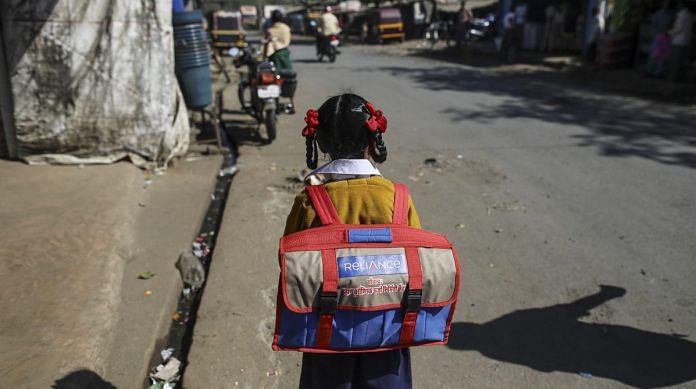New Delhi: India’s premier child rights body, the National Commission for Protection of Child Rights (NCPCR), has not gathered any data related to child sex abuse cases since the POCSO Act came into being in 2012.
This is what S.S. Rathi, the Supreme Court registrar, has informed the court, which had appointed him an ‘officer of the court’ to gather data on the status of cases pending under POCSO, the Protection of Children from Sexual Offences Act, and how states have fared in handling cases.
Rathi told ThePrint that the NCPCR had not collected any data about the total number of FIRs or the number of chargesheets filed in POCSO cases.
The Supreme Court had taken up the matter on its own after a survey it commissioned showed that of the 24,212 FIRs registered under POCSO in the first six months of 2019, over 11,900 cases — just under half — were pending investigation.
Also read: SC wants POCSO courts in districts with over 100 child sex abuse cases, sets 60-day deadline
‘Began seeking data on the day of hearing’
The NCPCR is a statutory body established as mandated under the Commission for Protection of Child Rights Act in December 2005. The commission works under the aegis of the Ministry of Women and Child Development, and began operating in March 2007.
Rathi said he thought the NCPCR would be the nodal agency to source data from, but it was not collecting “any useworthy data”.
Rathi said the NCPCR had begun seeking email addresses of district judges to collect data only Thursday morning, hours before the court was to hear the case.
The Supreme Court bench, led by Chief Justice of India Ranjan Gogoi, then asked how could a “premier agency like NCPCR” not have all this data.
The court has now granted more time to Rathi to dig up more data.
NCPCR’s response
The NCPCR responded to ThePrint’s requests for comment after this report was published. Yashwant Jain, member of the commission and head of the POCSO division, admitted that the commission didn’t gather data relating to case pendency and crimes recorded, as it was “waiting for a court order”, as this was essentially data available with the courts.
“We were informed only three days ago by the registrar that they need this data from NCPCR. But the data we had was up to 2018, which detailed the condition of POCSO courts and their numbers. The case pendency etc. is data available with the courts. We were waiting for a directive from the courts to collect this sort of data,” said Jain.
Jain also said the NCPCR has now designed an all-new format which will record all the data with regard to POCSO cases, especially with regard to pendency, number of chargesheets filed, FIRs registered, and trial details.
“About five to seven states have replied to us. We have also appointed nodal authorities in all the states, who will ensure that we receive such data on a monthly basis,” Jain said.
Best and worst-performing states
Rathi informed the court that over 1.5 lakh POCSO cases were pending across India, with a total disposal rate of just 24 per cent between 2014 and 2018. The pendency of these cases before the registry, meanwhile, has increased by 1,533 per cent.
Mizoram is the best performing state when it comes to disposing of POCSO cases, with 52 per cent, while Madhya Pradesh is second with 36 per cent.
At the other end of the list stands Odisha, with a disposal rate of just 12 per cent, half of the national average. Delhi had a disposal rate of 7 per cent for the cases heard in the last six months. Some states like West Bengal are yet to send in their data, and Rathi said the report will be updated when they do.
Also read: POCSO death penalty will spell life threat for victims, prolong trials, say experts



